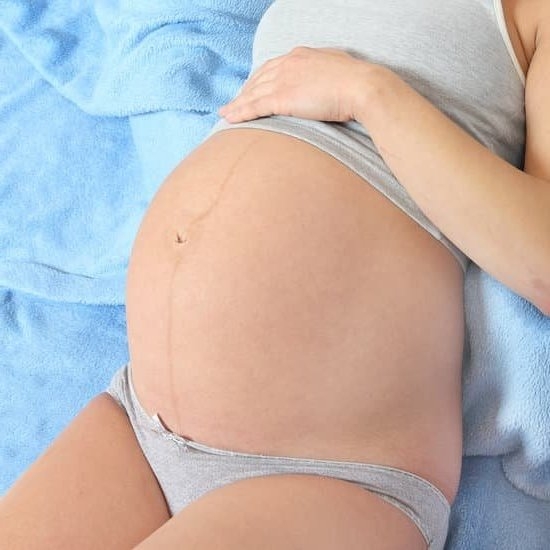When it comes to determining pregnancy, timing is crucial. Knowing how soon after a missed period to take a pregnancy test can provide accurate results and help individuals plan their next steps accordingly. Understanding the menstrual cycle plays a significant role in this process, as ovulation and conception timing are essential factors to consider.
Even before a missed period, early signs of pregnancy may start to manifest in the body. Recognizing these symptoms can prompt individuals to take a pregnancy test sooner rather than later. However, comprehending how pregnancy tests work is equally important. These tests detect the presence of certain hormones in the body that indicate pregnancy, shedding light on whether conception has occurred or not.
In this article, we will delve deeper into when to take a pregnancy test for optimal accuracy and explore various factors that can influence the results. Additionally, we will provide practical tips on taking a pregnancy test correctly to ensure reliable outcomes. Understanding the importance of timing and proper testing methods can make all the difference in determining one’s pregnancy status and taking appropriate actions moving forward.
Understanding the Menstrual Cycle
The menstrual cycle is a crucial aspect to understand when determining the timing of taking a pregnancy test after a missed period. The typical length of a menstrual cycle can vary from woman to woman but generally ranges between 21 to 35 days.
Ovulation, which is the release of an egg from the ovary, usually occurs around the middle of the menstrual cycle, approximately 14 days before the start of the next period. This means that for women with a regular 28-day cycle, ovulation typically happens around day 14.
Identifying Ovulation
In order to pinpoint when ovulation occurs, there are various methods that women can use such as tracking basal body temperature, cervical mucus changes, or using ovulation predictor kits. Understanding when ovulation happens can help in determining the best time to take a pregnancy test if one suspects they may be pregnant after missing their period.
Impact on Pregnancy Testing
The timing of ovulation and the length of your menstrual cycle directly impact how soon after a missed period you should take a pregnancy test. It is important to note that if implantation (the fertilized egg attaching itself to the uterus) occurs later than usual, it might take longer for pregnancy hormones to show up in a test. Conversely, if implantation occurs early, these hormones might be detectable sooner on a pregnancy test.
Early Signs of Pregnancy
During the early stages of pregnancy, your body may start to exhibit signs that could indicate a possible pregnancy even before a missed period. It is important to recognize these symptoms so that you can take a pregnancy test at the right time for accurate results.
One of the earliest signs of pregnancy is implantation bleeding, which occurs when the fertilized egg attaches itself to the uterine lining. This light spotting may be mistaken for a very light period, but it is usually shorter and lighter than a typical menstrual cycle.
Changes in Breast Sensation
Another common symptom of early pregnancy is changes in breast sensation. You may notice that your breasts feel more tender or swollen than usual. Your nipples might also become more sensitive or sore. These changes are due to hormonal fluctuations in your body as it prepares for pregnancy. Additionally, you may experience fatigue or tiredness even before your missed period. This could be attributed to the increased levels of progesterone, which can make you feel more sleepy during early pregnancy.
Cravings and Aversions
Some women also report experiencing cravings or aversions to certain foods in the weeks leading up to their missed period. You might find yourself craving specific foods that you normally don’t eat, or feeling repulsed by foods you used to enjoy. These changes in appetite can be an early indication of pregnancy.
It’s important to note that not all women will experience these symptoms, and they can vary from person to person. If you suspect you might be pregnant based on these early signs, it is recommended to take a home pregnancy test soon after your missed period for accurate results on whether you are pregnant or not.
How Pregnancy Tests Work
Pregnancy tests are essential tools used to determine whether a woman is pregnant or not. These tests detect the presence of a hormone called human chorionic gonadotropin (hCG) in the urine or blood, which is only produced when a fertilized egg attaches to the uterine lining. Understanding how pregnancy tests work can help individuals interpret their results accurately.
Here’s How Pregnancy Tests Typically Work
- The most common type of pregnancy test is a urine-based test that can be easily taken at home.
- These tests usually involve either dipping a test stick into a collected urine sample or holding the stick under a stream of urine for a few seconds.
- If hCG is present in the urine above a certain threshold, it triggers a chemical reaction that causes lines to appear on the test strip, indicating a positive result.
Other Important Points About Pregnancy Tests Include
- Pregnancy tests vary in sensitivity, with some being able to detect lower levels of hCG earlier than others.
- A blood test conducted by healthcare professionals can also detect hCG and provide more accurate results than at-home urine tests.
Knowing how soon after missed period pregnancy test is crucial as taking a test too early may result in false negative results due to low hCG levels. It is generally recommended to wait at least one week after a missed period to take a pregnancy test for more reliable results. If the initial test is negative but pregnancy symptoms persist, it is advisable to retest after a few days or consult with a healthcare provider for further guidance.
When to Take a Pregnancy Test
When wondering about how soon after a missed period a pregnancy test should be taken, it is essential to understand the menstrual cycle and the timing of ovulation. The typical menstrual cycle lasts around 28 days, with ovulation usually occurring around day 14. This means that if a woman has regular periods, missing a period could be one of the early signs of pregnancy.
Before taking a pregnancy test, it is important to be aware of the early signs of pregnancy that may occur even before a missed period. These symptoms can include fatigue, nausea, breast tenderness, and frequent urination. While these symptoms are not exclusive to pregnancy and can be caused by other factors, they could indicate the need for a pregnancy test after a missed period.
To ensure accurate results when taking a pregnancy test after a missed period, it is generally recommended to wait at least one week after the missed period before testing. This waiting period allows enough time for the body to produce detectable levels of the hormone hCG (human chorionic gonadotropin) if pregnancy has occurred. Testing too soon after a missed period may result in a false negative result due to low hormone levels.
| Early Signs of Pregnancy | Typical Symptoms |
|---|---|
| Fatigue | Feeling extremely tired or exhausted |
| Nausea | Feeling queasy or experiencing morning sickness |
| Breast Tenderness | Sensitivity or soreness in the breasts |
Factors That Can Affect the Results
When it comes to taking a pregnancy test, there are several factors that can affect the accuracy of the results. One important factor to consider is the timing of the test. Understanding how soon after a missed period to take a pregnancy test can greatly impact its reliability.
For most accurate results, it is recommended to wait at least one week after a missed period before taking a pregnancy test. This timeframe allows for sufficient levels of the pregnancy hormone hCG to build up in your system for detection.
In addition to timing, the type of pregnancy test you use can also influence its accuracy. There are different types of tests available, including urine and blood tests.
While urine tests are more commonly used due to their convenience and affordability, blood tests conducted in a healthcare setting are considered more sensitive and can detect lower levels of hCG earlier on in pregnancy. Therefore, if you suspect you might be pregnant but receive a negative result from a urine test, it may be beneficial to follow up with a blood test for confirmation.
Other factors that can affect the results of a pregnancy test include medications that you may be taking, medical conditions such as polycystic ovary syndrome (PCOS), and errors in testing procedure. It’s important to carefully follow the instructions provided with the pregnancy test kit to ensure accurate results.
If you have concerns about any factors that could impact the reliability of your pregnancy test, consulting with a healthcare provider or reproductive health specialist can provide further guidance and clarification on your results.
| Factors Affecting Pregnancy Test Results | Impact on Accuracy |
|---|---|
| Timing of Test | Waiting at least one week after a missed period for best results |
| Type of Test | Blood tests are more sensitive than urine tests |
| Medications & Medical Conditions | Can potentially interfere with hCG levels and result interpretation |
Tips for Taking a Pregnancy Test
Taking a pregnancy test can be an anxious moment for many women, especially when trying to conceive or prevent an unexpected pregnancy. Knowing how soon after a missed period to take a pregnancy test is crucial in obtaining accurate results. Here are some essential tips to ensure the most reliable outcome when taking a pregnancy test:
- Choose the right time: It is recommended to take a pregnancy test in the morning as this is when the concentration of the pregnancy hormone hCG (human chorionic gonadotropin) is at its highest in urine, providing more accurate results.
- Read and follow instructions carefully: Different types of pregnancy tests may have specific instructions that need to be followed for accurate results. Be sure to read and understand these instructions before taking the test.
- Avoid excessive fluids: While it is important to stay hydrated, consuming too many fluids before taking a pregnancy test can dilute the hCG levels in your urine, potentially leading to false-negative results.
Additionally, it is essential to keep in mind that not all pregnancy tests are created equal. Some tests may be more sensitive than others in detecting hCG levels, so choosing a reputable brand can also impact the accuracy of the results. By following these tips and guidelines, you can increase the likelihood of getting an accurate result when taking a pregnancy test.
Remember that if you receive a negative result but still suspect you might be pregnant, it is recommended to wait a few days and retest as hCG levels continue to rise throughout early pregnancy. If you receive a positive result or are unsure about the results, seeking medical advice from your healthcare provider is always advisable for further confirmation and guidance on next steps.
What to Do Next
After taking a pregnancy test, whether it’s positive or negative, it’s important to know what steps to take next. If the test is positive, congratulations may be in order. This exciting news can bring a mix of emotions and questions about what to do next.
The first step is to schedule an appointment with your healthcare provider to confirm the pregnancy and discuss prenatal care options. Early prenatal care is crucial for the health of both the mother and the developing baby.
On the other hand, if the pregnancy test comes back negative and you were hoping for a positive result, remember that false negatives can occur, especially if taken too early. It may be recommended to wait a few more days and retest or consult with your healthcare provider for further guidance. If you are not ready for pregnancy, this result may bring relief but can also prompt reflection on birth control methods or family planning.
Regardless of the test result, seeking medical advice is essential after taking a pregnancy test. Your healthcare provider can offer support, answer any questions you may have, provide guidance on next steps, and ensure that you receive proper care moving forward. Remember that every person’s situation is unique, and having professional guidance can help navigate this significant moment in your life effectively.
Frequently Asked Questions
How Many Days After Missed Period Will Pregnancy Test Show Positive?
Pregnancy tests can typically show a positive result as early as 8-10 days after ovulation or conception, which translates to around 3-4 days after a missed period. However, to get the most accurate result, it is recommended to wait at least a week after your missed period before taking a pregnancy test.
How Many Days Should You Wait to Test for Pregnancy After Missed Period?
It is best to wait at least one week after you have missed your period before testing for pregnancy. This waiting period allows enough time for the pregnancy hormone hCG to build up in your body to levels that can be detected by a home pregnancy test. Testing too early may result in a false negative result.
How Soon Will a Pregnancy Test Read Positive Clearblue?
Clearblue Pregnancy Tests are designed to detect pregnancy up to 6 days before your missed period, which is sooner than most other tests on the market. These tests are sensitive enough to pick up very low levels of hCG in your urine, which means you can potentially get an early positive result with Clearblue.
However, it’s important to remember that the accuracy of the test increases the closer you are to your expected period start date.

Welcome to my fertility blog. This is a space where I will be sharing my experiences as I navigate through the world of fertility treatments, as well as provide information and resources about fertility and pregnancy.





